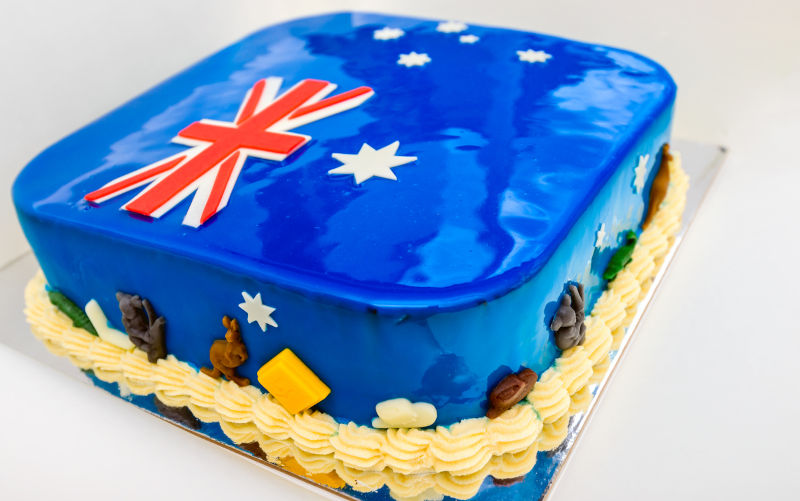Australia’s fuzzy nationalism
August 23, 2024
Australia is not immune to the global trend to nationalism. Politicians here as elsewhere pepper their talk with terms such as “sovereignty”, “national values” and “our way of life”. These are all relative, only defined by reference to other peoples and other nations that are “not like us”. The uniqueness of Australian nationalism is that it is universally assumed to include the values, way of life and strategic outlook of the United States of America. They are not us but like us. This is what I call fuzzy nationalism.
Nationalism is an ill-defined concept. Realists such as Stephen Walt and John Mearsheimer regard it as the driving force in international relations. Others note that over the last decade nationalism has been characterised by a focus on national autonomy, unity and identity. Cases in point include the election of former US president Donald Trump and the British “Brexit” referendum. Nationalist leaders have dismantled international rules and laws such as GATT and what Trump called “globalism”. Australia, a trading nation for the last two hundred years, would be doomed to extinction if we subscribed to such inward-looking policies, but that has not stopped the spread of nationalist ideology. Surely this is cognitive dissonance!
Australian politicians’ rhetoric is sprinkled with nationalist terms, generally couched in vague terms such as “values”. Former Prime Minister John Howard loved “mateship” and others have promoted a “fair go”. Scott Morrison’s 2019 Australia Day address mentioned “family, hard work, common sense, respect, responsibility, a fair go for those who have a go and being prepared to help others.” None of these values is unique to Australia or even to the Western democratic world. One might argue that they are common to all human societies. Sir Andrew Wood pointed ten years ago that Russia, its government and the Russian Orthodox Church espoused the same values as the rest of Europe. At its 18th National Congress in 2012, the Chinese Communist Party adopted twelve “ core socialist values” to be promoted nationwide, including prosperity, democracy, civility, harmony, freedom, equality, justice, the rule of law, patriotism, dedication, integrity and friendship. Nationalism based on these values is fuzzy indeed.
Nationalism discourse is also characterised by references to sovereignty. This might seem to be less open to interpretation but is sometimes put in terms of guarding against others rather than building up internal integrity. Defence Minister Richard Marles is keen on sovereignty. He told Parliament in 2023, “Sovereignty is at the heart of national security and Australia’s way of life”. He defined it as “the capacity of a people, through their government, to determine their own circumstances and to act of their own accord, free from any coercive influence”. One could take issue with this definition, but time and space are not sufficient. Let us simply note that Marles defines it in terms of external relations, making it part of the nationalist discourse, distinguishing between “us” and “them”.
Marles-type nationalism is so fuzzy that it is actually incoherent. James Curran reached this conclusion in a recent talk to the Australian Institute of International Affairs. He charted the development of Australian nationalism from a sense of pride in national self-determination and independence in the 1980s (as exemplified in movies such as Breaker Morant), through extensive promotion of Anzac Day culture under John Howard, to a bizarre “folding” of Anzac rhetoric into Howard’s “hundred-year mateship” with the US. Dedication to this cult of a special relationship and “community of culture” between Australia and the US has now reached such a pinnacle that it is beyond criticism and unchallenged by either side of politics. Marles has been finding it difficult to explain how military integration with the US, with American troops in Darwin and Tindal and submarine bases in the West (and probably the East later), let alone the transfer of nuclear technology and materials fits with his definition of sovereignty where people “determine their own circumstances and act of their own accord, free from any coercive influence”.
A community of culture certainly exists between the US and Australia. It encompasses daily life (food, drinks, sports, leisure activities, holidays, recreational drugs) and cultural pursuits (sports, literature, movies, social media, celebrity culture etc). American soft power is overpowering, underwritten by the shared English language, where increasingly American usage and pronunciation prevails. It is therefore vitally important, as Curran points out, to distinguish between community of culture and community of interest. The danger of belief in a special relationship is that it assumes that both partners share common strategic interests.
Former Prime Minister Julia Gillard mentioned “friends” and “friendship” twelve times in her speech to the US Senate in 2011. Elaborating the point, she said, “We have stuck together. In every major conflict. From Korea and Vietnam to the conflicts in the Gulf.” This is a gross distortion of history. The US and Australia had no shared interests in these wars, or in Afghanistan or the Gulf War. They were all initiated by the US for their own political reasons, not for the defence of Australia, and the cost to this country in human as well as economic terms has far outweighed any political benefits.
If we are to have nationalism and to defend our sovereignty, let it be on our own terms.

